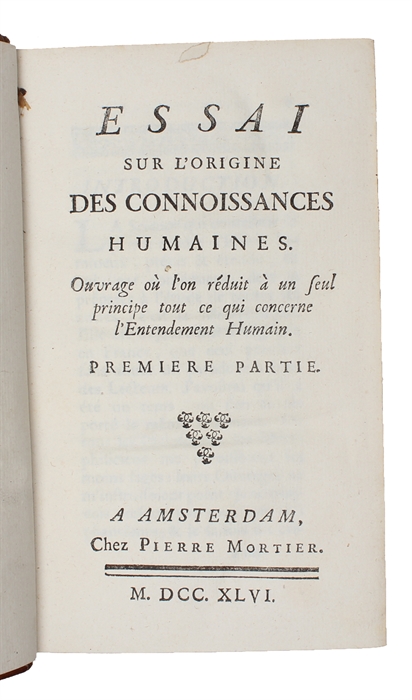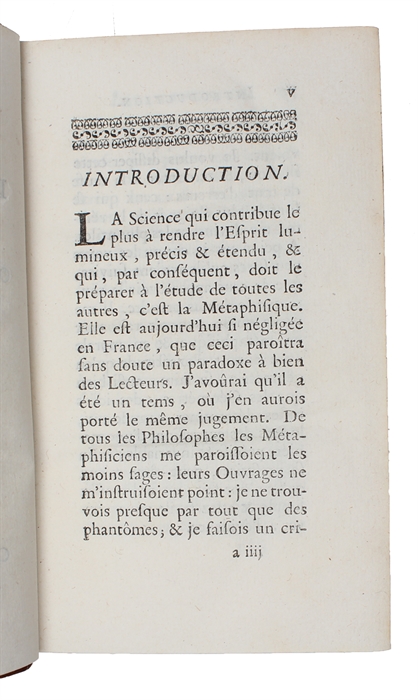CONDILLAC'S FIRST WORK
CONDILLAC, ETIENNE BONNOT DE.
Essai Sur L'Origine Des Connoissances Humaines. 2 parts.
Amsterdam, Mortier, 1746.
8vo. Two parts bound in one nice contemporary Cambridge-style mirror binding with five raised bands and richly gilt spine. Nobel super ex-libris to front board. Light wear to extremities, a few small wormholes to board and upper capital with slight loss of leather, showing endbands. Internally very fine and clean, a nice copy. XXX, 265, (3), 292 pp-
First edition of Condillac’s first, and arguably one of his most important, work in which he explores the ideas of the origins of human knowledge and the formation of concepts. It marks a radical departure from the dominant conception of the mind as a reservoir of innately given ideas. Descartes had argued that knowledge must rest on ideas, Condillac turned this upside down by arguing that speech and words are the origin of mental life and knowledge. Étienne Bonnot de Condillac was an 18th-century French philosopher and epistemologist known for his work in the fields of philosophy of mind and epistemology. Condillac is often associated with the school of sensationalism, which emphasizes the role of sensory experiences in the formation of knowledge. Condillac was largely responsible for the systematic establishment in France of Lockian sensationalism and he became the "father of French philosophy in the 18th century." (C.Mallet, ”Nouvelle Biographie Générale”) and his work influenced many later philosophers, and also anticipated Wittgenstein's view of language and its relation to mind and thought. Barbier II 235
He argues that all human knowledge ultimately arises from sensory experience and that the mind is initially passive, receiving impressions from external stimuli - he took his mentor John Locke's anti-Cartesian philosophy to a systematic extreme, claiming that even ideas of morality and theology could be derived from their supposed origin in sensation
Tchemerzine III 474.
Order-nr.: 60865



